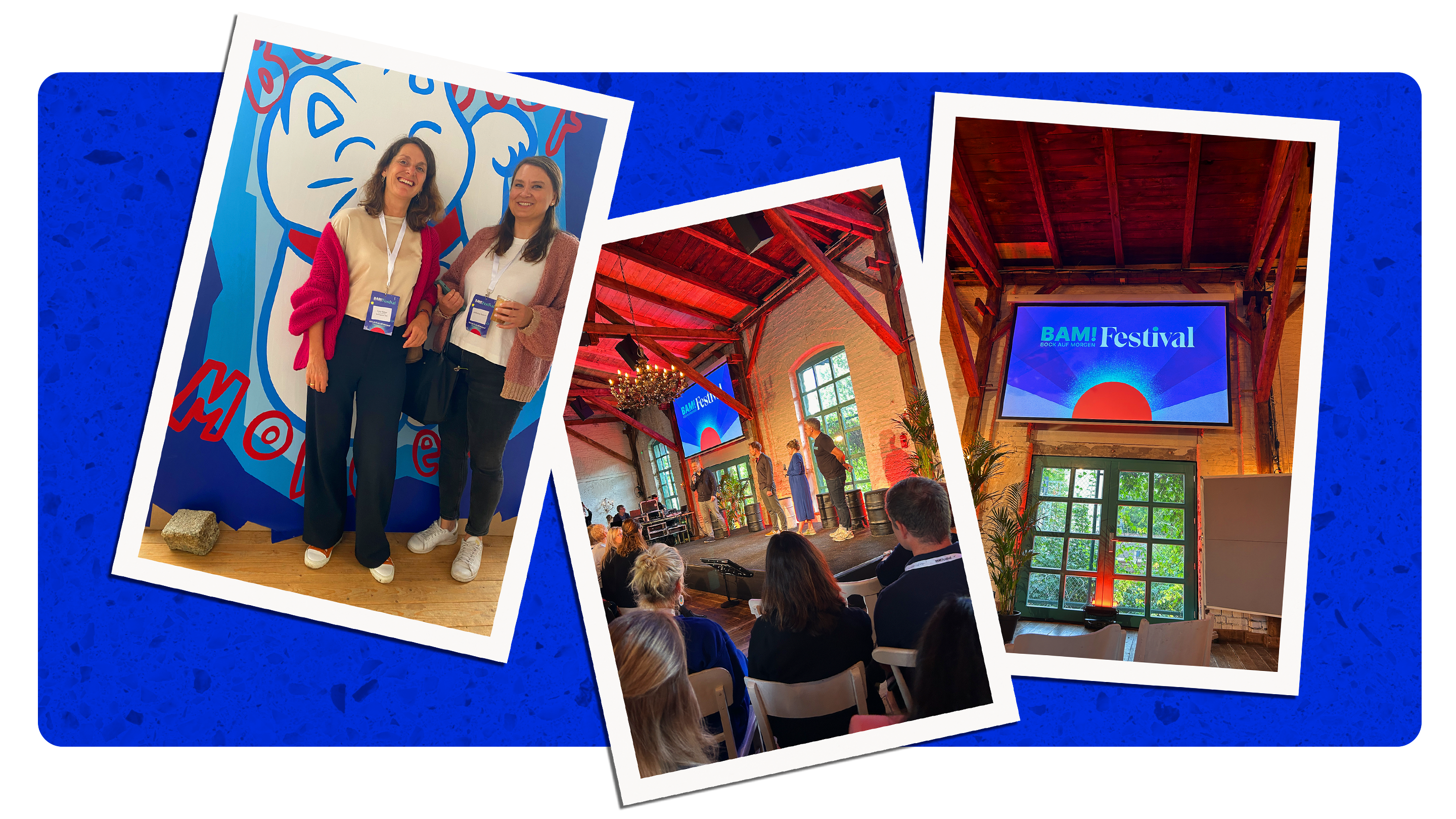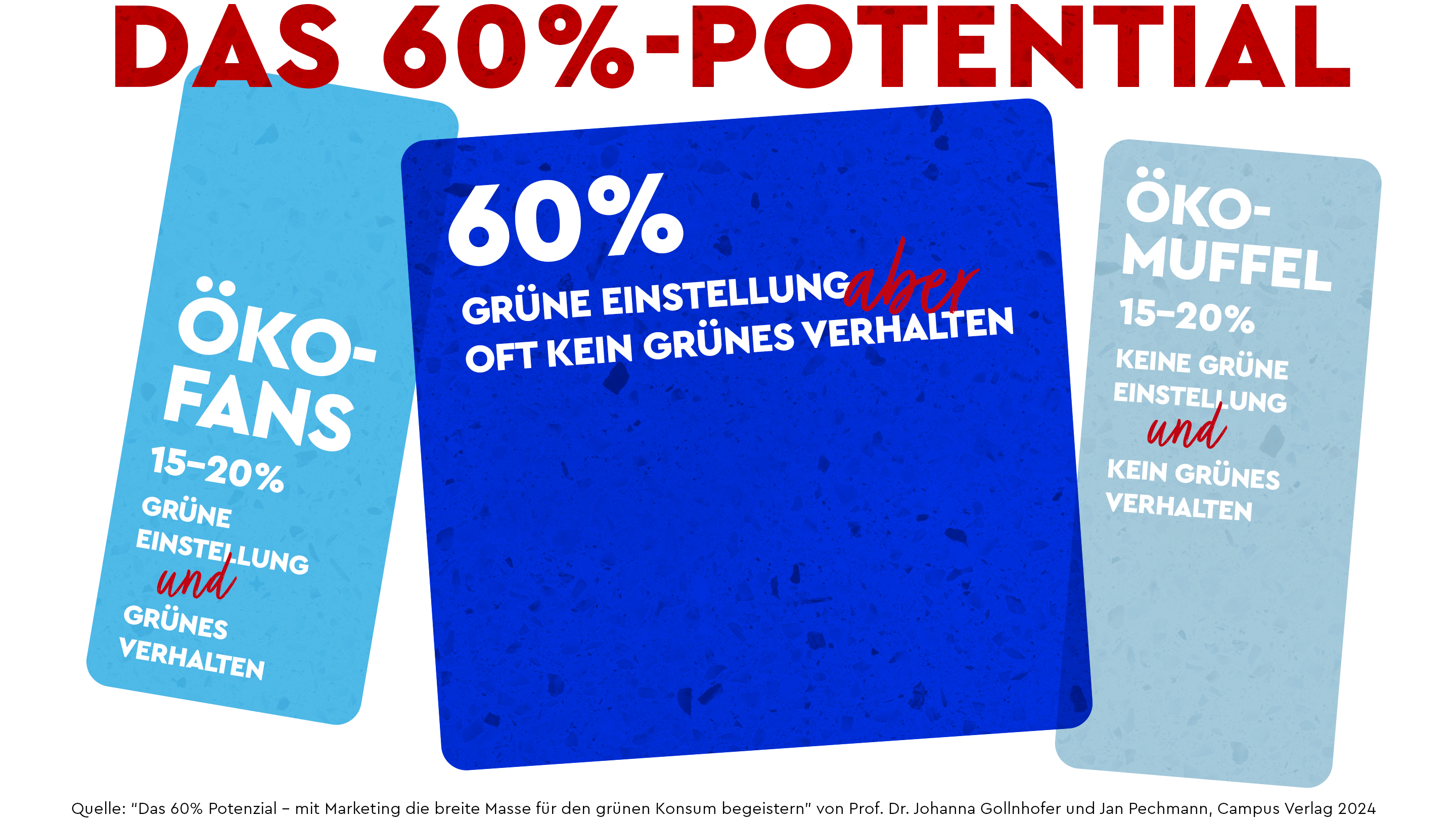

BAM! Bock auf Morgen Festival in Berlin. – Of course, Germany’s most sustainable advertising agency was not to be missed. We would like to share three topics that we personally found particularly inspiring.


“Vegan and sustainable? Out of the eco-trap”
Sustainable products need to reach the masses – and this is exactly what we have been achieving together with our customer Alnatura for 30 years. The days when terms such as “vegan”, “sustainable” or “organic product” were enough to convince consumers are over. Today, such buzzwords no longer reach enough people and often lead to consumer fatigue. A fitting example is Unilever’s vegan ice cream: success only came when the focus of communication was placed on “enjoyment” and the vegan label only played a minor role. The lesson from this is clear: advertising for sustainable products should not primarily emphasize sustainability, but rather focus on other relevant advantages – such as the specific benefits. VAUDE does this successfully with bike bags that are declared as repairable. The result? Sustainability is becoming more attractive and tangible and around 60% of consumers could become potential buyers of sustainable products – provided the offer is appealing enough. The challenge and opportunity for companies is therefore not to communicate sustainability as an end in itself, but to highlight the benefits that really excite consumers.


Exciting topic? Our book tip: The 60% potential – using marketing to get the masses excited about green consumption by Prof. Dr. Johanna Gollnhofer and Jan Pechmann.
“So that the circular economy finally runs smoothly”
The circular economy offers the potential to decouple resource consumption from economic growth. However, despite its status as a megatrend, only 8% of materials are currently actually recycled – and the trend is downwards. At the same time, phenomena such as TEMU, a Chinese online retailer of cheap goods, are experiencing a boom. What are the reasons for this contradictory development? Renowned experts provide exciting insights and ideas: Steffen Erath from hansgrohe sees the reason in the fact that “only genuine innovations stand out from the competition” and therefore become relevant. Manni Meindl from Vaude emphasizes that “borrowing instead of owning is a completely new trend”, meaning that a change in consumer behaviour is necessary. Consumer behaviour also plays a major role: Joost van Treeck (Cronbach) emphasizes that “people find it difficult to behave in line with the circular economy”. Alexander Eckert points out that “good storytelling” is crucial to making the circular economy understandable and attractive. The challenge is therefore to strengthen the circular economy at various levels – through innovation, consumer behavior, design and convincing communication. The circular economy can only be successfully and widely established in the long term if all stakeholders and areas work together.
Burger King as winner of the Marketing for Future Award in Gold
The – sometimes controversial – winner receives our full recognition: because big players have enormous leverage when it comes to the green transformation. Burger King shows that even companies from the fast food sector can make a significant contribution to sustainability. Thanks to their reach and resources, big brands like Burger King have the potential to drive real change. The fact that fast food chains are often far more sustainable than their reputation would suggest was something we learned back in 20xy when we prepared the sustainability report for McDonald’s. Sustainability efforts and the transparent communication of such measures are crucial to shaping the change towards a more sustainable future – and we recognize Burger King’s commitment in this regard with the Gold Marketing for Future Award.
BAM! Bock auf Morgen Festival 2024
The declared aim of the event was to turn marketing into a driver of success for sustainable transformation and, in line with the slogan “Bock auf mehr” (“Want more”), there were exciting keynotes, workshops, deep dives and networking formats with renowned speakers from marketing, science and consulting. More information: https://www.bock.am/ We are already looking forward to next year!